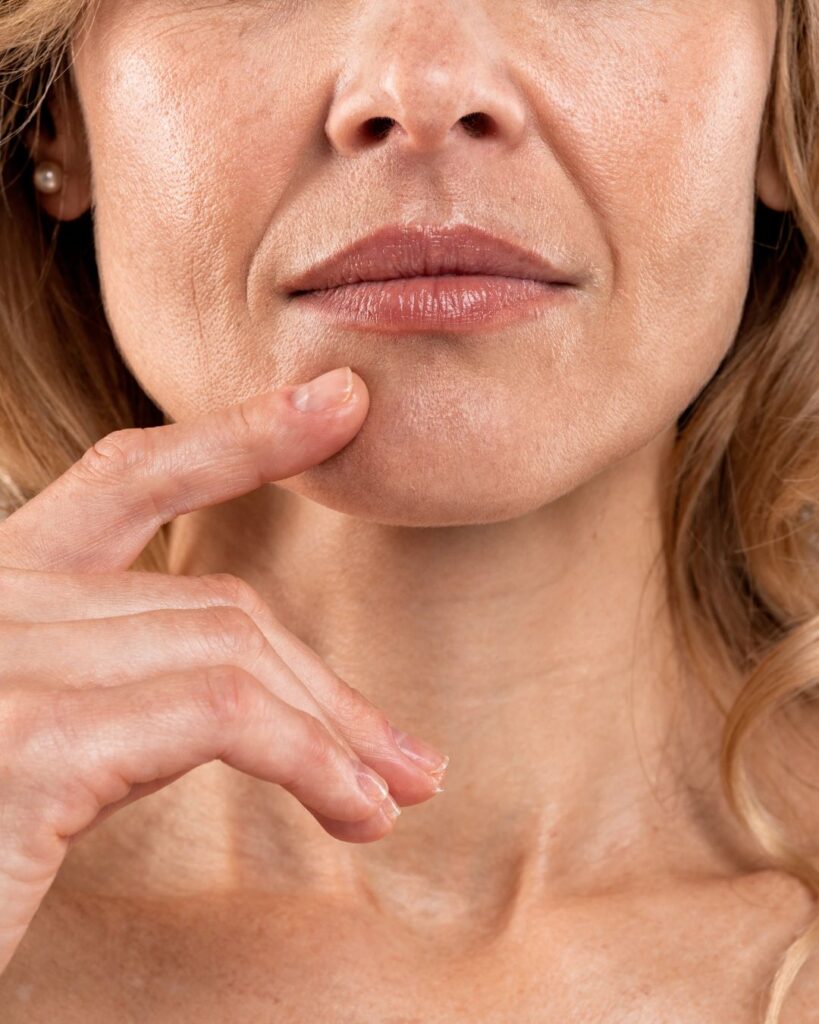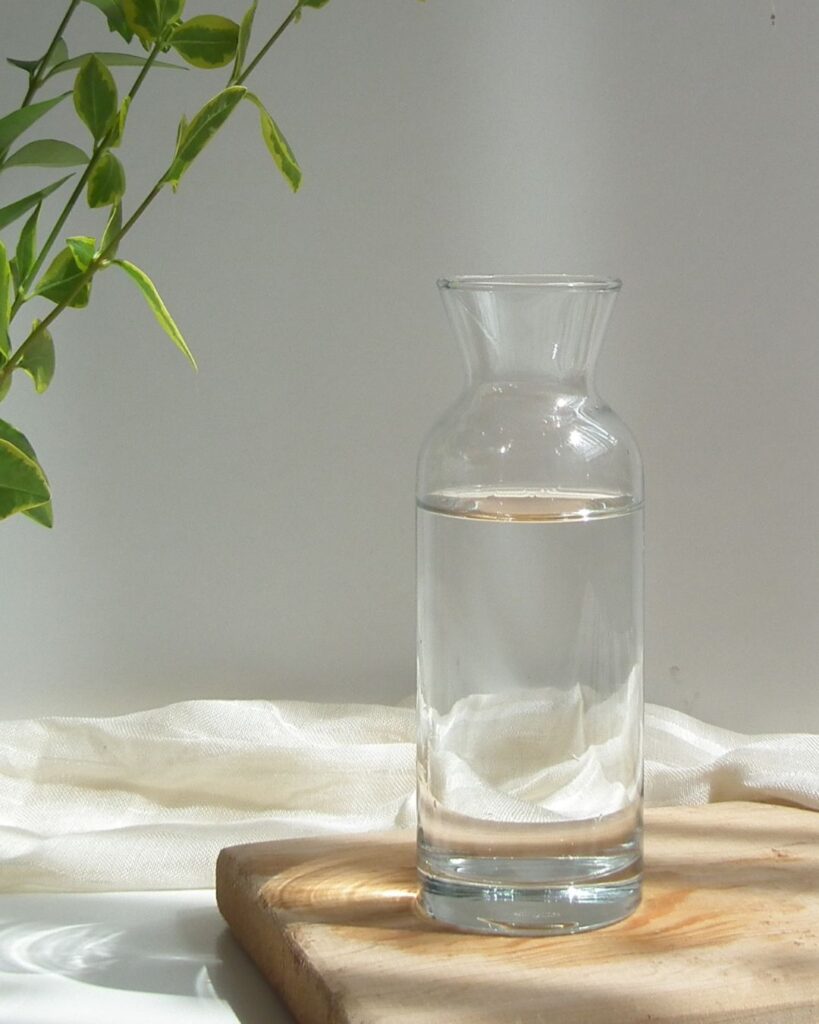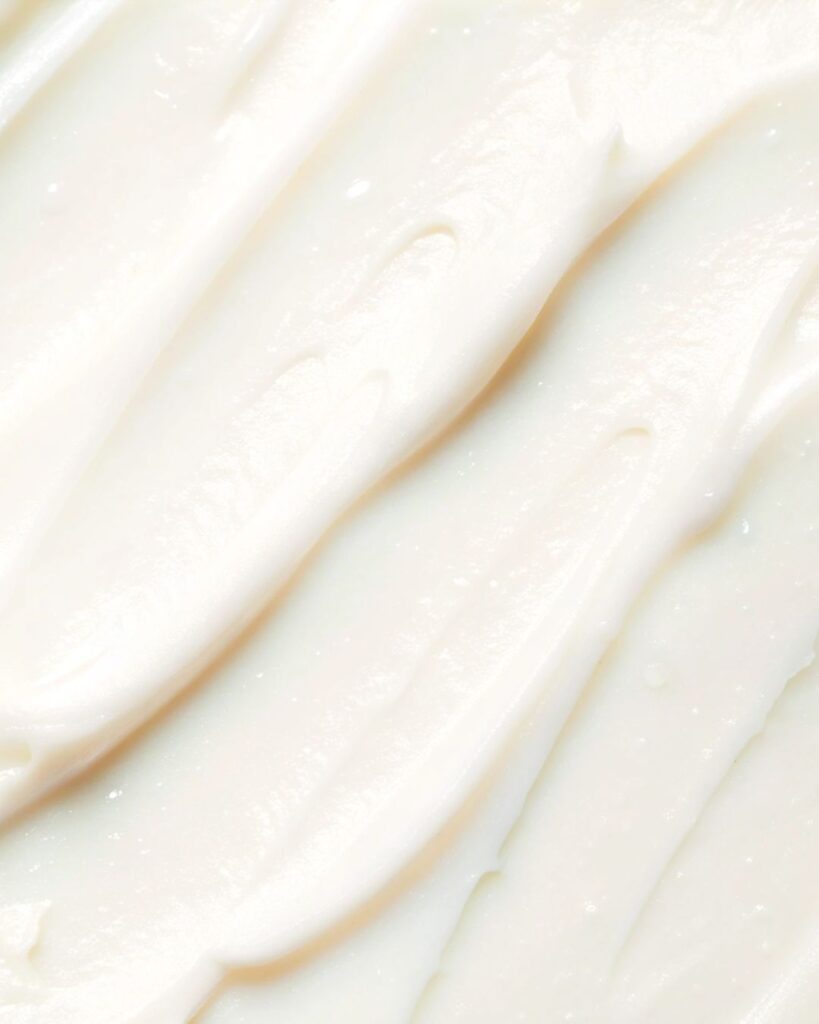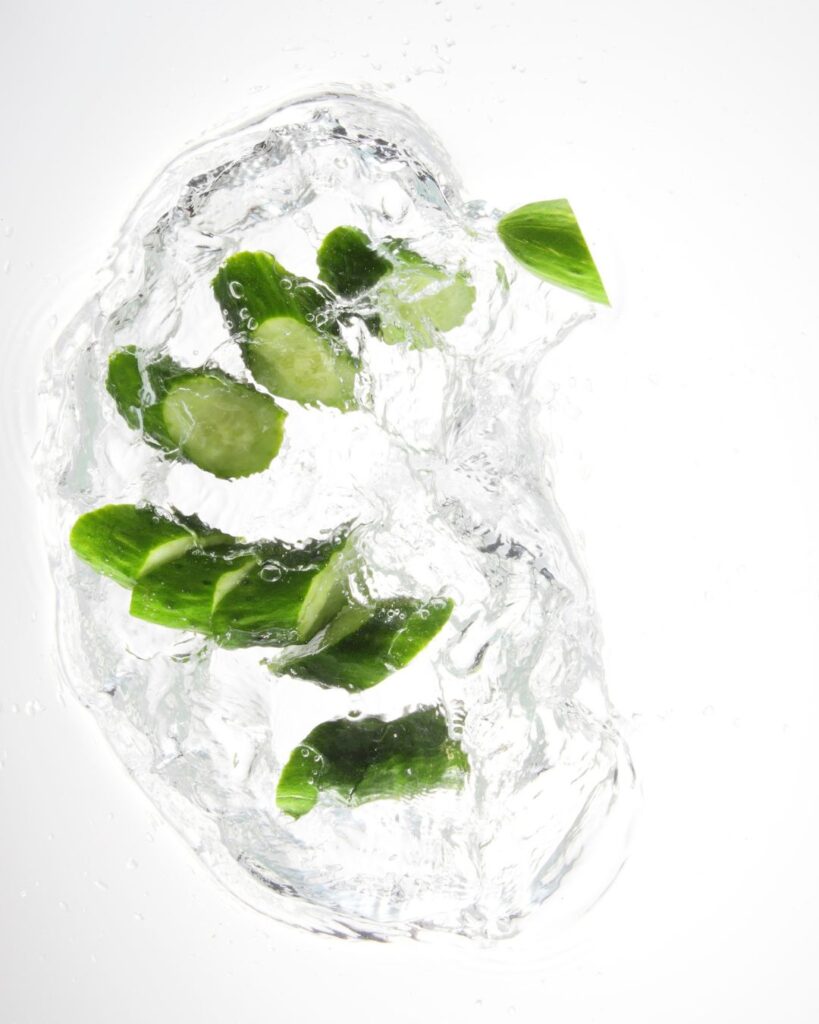As a menopause health coach, I help midlife women decode the hidden symptoms of hormonal change, including itchy skin in menopause. In this post, we’ll explore why your skin feels more reactive during menopause, the common mistakes that make it worse, and how to support your skin from the inside out.
Itchy skin in menopause often shows up quietly, maybe as a subtle dryness, a sudden sensitivity, or that persistent urge to scratch. Many women chalk it up to aging or seasonal changes, but the real cause often lies deeper: hormonal shifts that affect the skin’s structure and resilience.
The mistake? Treating it like ordinary dry skin.

If your skincare routine hasn’t evolved with your hormones, it might be time to rethink it.
The Real Reason Your Skin Feels So Irritated
During menopause, estrogen levels drop. This shift affects your skin’s ability to retain moisture, produce collagen, and maintain its protective barrier. The result? Skin that’s thinner, drier, and far more reactive than it used to be.
If you’re still using the same products you relied on in your 30s, or ignoring the subtle signs your skin is sending, you might be making menopause itchier than it has to feel.
Common Mistakes That Make Itchy Skin in Menopause Worse
Let’s break down a few habits that could be fueling the discomfort:
- Using harsh soaps or scented body washes
These strip away natural oils and disrupt your skin’s microbiome. Look for gentle, pH-balanced cleansers instead.
Source: Medical News Today.
- Taking long, hot showers
Hot water feels soothing, but it dehydrates the skin fast. Switch to lukewarm water and keep showers short.
- Skipping moisturizer or using the wrong kind
Light lotions won’t cut it. You need richer, barrier-repairing creams with ingredients like ceramides, hyaluronic acid, or colloidal oatmeal.
- Wearing synthetic fabrics
Polyester and nylon can trap heat and irritate sensitive skin. Opt for breathable cotton or bamboo fabrics.
- Overdoing caffeine or alcohol
Both can dehydrate your body and your skin. Hydration matters more than ever during menopause.
What To Do Instead



Itchy skin in menopause responds best to a holistic approach, one that supports your skin from the inside out. Here are some thoughtful shifts to consider:
- Hydrate deeply
Drink water consistently and eat moisture-rich foods like cucumbers, berries, and leafy greens.
- Nourish with healthy fats
Omega-3s from flaxseeds, walnuts, and salmon help reinforce your skin’s lipid barrier and reduce inflammation. My hormone-friendly recipe collection is a beautiful place to start. It’s filled with delicious meals designed to calm inflammation, boost hydration, and gently support your body through menopause.
- Choose calming skincare
Look for fragrance-free formulas designed for sensitive or mature skin. I’ve curated a few favorites that support barrier repair and calm irritation, especially helpful during perimenopause and menopause when skin can feel reactive or itchy.
These are the products I personally use and trust. 🤎
Explore my gentle skincare recommendation.
- Support your nervous system
Stress can trigger flare-ups. Gentle movement, breathwork, and magnesium-rich foods like pumpkin seeds and dark leafy greens can help regulate your response.
- Prioritize sleep hygiene
Skin regenerates overnight. A consistent sleep routine, cool bedroom environment, and calming nighttime rituals can make a noticeable difference. My 30-day free guest pass to Calm gives you access to guided meditations, breathwork, and sleep stories – gentle tools to support your nervous system.
- Protect your skin from the sun
Menopausal skin is more vulnerable to UV damage. Use mineral-based sunscreen and wear protective clothing when outdoors.
When to Seek Extra Support
If your itchy skin becomes inflamed, painful, or disrupts sleep, it’s worth consulting a practitioner.
FAQs
Is stress really making my skin itchier?
Yes, your nervous system and skin are deeply connected. Elevated cortisol can trigger inflammation and worsen itchiness. That’s why nervous system support is part of the solution.
Why does my skin feel itchier at night?
Two reasons: your body temperature naturally rises in the evening, and cortisol levels fluctuate. Both can make itchiness more noticeable. A calming nighttime routine and breathable bedding can help.
What foods should I avoid?
While everyone’s triggers are different, common culprits include:
- Excess sugar (can spike inflammation)
- Processed foods with additives
- Alcohol and caffeine (can dehydrate)
Want More Hormone-Smart Tips?
Itchy skin menopause isn’t just about dryness, it’s about listening to your body’s evolving needs.
Join my newsletter for practical wellness insights and content that support your midlife transformation, inside and out.
Want to dive deeper into how I work as a menopause health coach? Explore my approach, services, and philosophy on my coaching page.
+ show Comments
- Hide Comments
add a comment